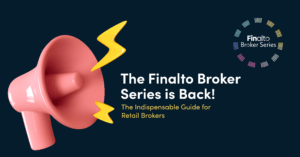How To Check If A Broker Is Legit: Expert Advice From Traders Union
Fraud is prevalent in all financial sectors, including forex trade. Due to the large amounts of money involved, scams in forex trading can lead to significant financial losses for individuals, potentially setting them back for years. In this post, TU equips you with comprehensive knowledge to recognize and steer clear of fraudulent forex brokers.

Checking the Legitimacy of a Forex Broker in 5 Easy Steps
Forex trading, a legitimate business and investment model, provides opportunities for significant profits. However, it is not immune to scams and fraudulent practices. Scammers prey on unsuspecting traders, luring them with promises of quick riches and disappearing with their hard-earned money. To protect yourself from such scams and make informed choices, it’s crucial to know how to identify fraudulent forex brokers and choose reputable ones. Below are essential tips from Traders Union analysts to help you navigate the forex market safely:
Check Your Broker’s Regulatory Info: The first step in ensuring the legitimacy of a forex broker is to verify their regulatory status. Reputable brokers are registered and regulated by international or regional regulatory bodies. In the United States, look for brokers registered with organizations like the:
- National Futures Association (NFA),
- Financial Industry Regulatory Authority (FINRA),
- Commodities and Futures Trading Commission (CFTC),
- Securities Investor Protection Corporation (SIPC),
- Chicago Board of Trade (CBT).
A legitimate broker should prominently display their regulatory IDs on their website. Verify the registration by visiting the regulatory body’s website or using their hotline.
Verify the Regulator’s Website Quality: Fraudulent brokers often create low-quality websites to deceive traders. A trustworthy broker’s website should contain essential information, including their regulatory affiliations, explicit risk disclosure, legal details, trading rules, compliance measures, and contact information. Additionally, established brokers have a track record of at least several years and may provide official profit and loss statements. A lack of crucial information or a poorly designed website can be red flags.
Avoid Unrealistic Promises: Beware of brokers who promise high and immediate returns. Forex trading is inherently risky, and no broker can guarantee profits. Scammers exploit this desire for quick riches to lure inexperienced traders or those facing financial difficulties. Legitimate brokers emphasize risk management and responsible trading, rather than making extravagant claims.
Responsive Customer Service: A reputable forex broker places a high value on customer service. They have a responsive team, including AI bots, to answer queries and address concerns promptly. Scammers, on the other hand, are likely to ignore or delay responses to avoid scrutiny. Avoid brokers with poor customer service, as it may indicate potential fraudulent activities.
Check Client Reviews: One of the most reliable ways to assess a broker’s reputation is through client reviews. Search for reviews from reputable forex forums and websites to gauge the experiences of other traders. Positive client reviews indicate a trustworthy broker, while a pattern of negative reviews should raise concerns.
Conclusion
While forex trading offers legitimate opportunities, scams do exist. Traders Union trading analysts advise to protect yourself by verifying a broker’s regulatory status, website quality, and customer service responsiveness. Avoid falling for unrealistic promises of quick profits, and instead, focus on responsible trading practices. Always check client reviews to gain insights into a broker’s reputation. Remember that forex trading requires patience, skill, and diligent risk management. Analysts at TU recommend choosing reputable brokers to safeguard your investments and enjoy a secure trading experience in the forex market. By staying informed and vigilant, you can navigate the forex market with confidence and avoid potential scams that could set you back financially.
The subject matter and the content of this article are solely the views of the author. FinanceFeeds does not bear any legal responsibility for the content of this article and they do not reflect the viewpoint of FinanceFeeds or its editorial staff.









